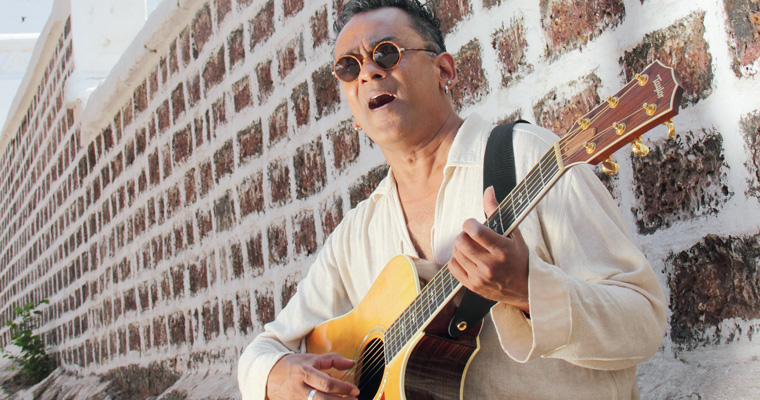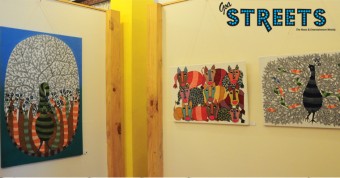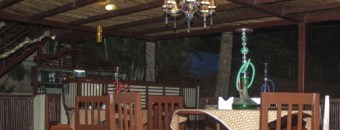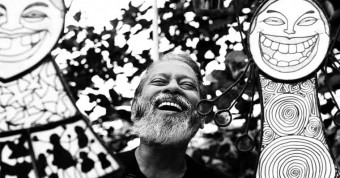Remo Fernandes’s amazing journey has taken him through pop, rock, Indian fusion, playback singing for films and chillout music. Influences from Goan and Portuguese music to African and Latin and Jamaican genres give his songs a charismatic energy. India’s pioneering rock star talks to Streets’ Editor José Lourenço, among other things, about his latest project – the reworking of one of his finest albums – Goan Crazy.
JL: What kind of music and artistes are you listening to these days?
RF: I listen to different kinds of music, but for the last two weeks I’ve been listening to is Deolinda, a young group from Portugal, fully acoustic and the music is very minimal – two guitars and an acoustic bass. I love their music and their compositions. Most of the time, if you ask musicians who are also composers, most of us don’t really keep abreast of what is the latest music. We’re too busy creating our own music, rather than following what’s happening. That period of ‘following music’ happened many years ago, when I was in college, and we wanted what to know of the latest that Jethro Tull had released, the new Led Zeppelin album, the new James Taylor album…
JL: You’re re-recording Goan Crazy, your earliest album originally recorded in 1984?
RF: I just finished recording it last night, the last song. Now we’ll start the mixing and the mastering.
Remo jamming with A R Rahman
Photograph by Amrita Barua
JL: Has the timber of your voice changed over these years?
RF: One of my really old friends, who knows me before I recorded Goan Crazy, has heard the new recordings, and he is convinced that it is the same voice. Luckily for me, it hasn’t changed, and I know some singers whose voice has not changed. Look at Lorna, you hear her singing and you can’t make out that decades have passed.
JL: Is it a problem that music recorded today, especially Konkani music in Goa, is recorded in studios with programming?
RF: No, I don’t think so. The problem is the music itself. If you have a good, inspired song, no one stops to think ‘Oh , but this is programmed.’ A good song is a good song; you don’t have to even think about it, it touches you. If you listen to Birdie Dance, do you stop to wonder whether it is programmed or not? Or Gangnam style? Or Kolaveri Di? Unfortunately here in India, the focus is all on technology. Not enough attention is being given to creativity and originality.
We are proud to be good photo copying machines. Raj Kapoor, one of the so called biggest actors of India was proud to say that he was the Charlie Chaplin of India. Someone else will be proud to say she is the Madonna of India, or that he is the Michael Jackson of India. Why only people, we are proud to say that Kashmir is the Switzerland of India. We only value ourselves if we can be compared to something abroad. Goa is the Rome of the East! We pat ourselves on the back, we exaggerate, and say we are the Rome of the East. I think that is the main reason why we have not directed our attention to being original. If we can copy someone from the West, it’s fantastic.
Remo with the legendary Ian Anderson of Jethro Tull
JL: Did you start writing after you travelled around Europe?
RF: I was writing my own songs much before going to Europe. I started doing Indo-Western fusion much before I ever left India. When I was in Bombay, I had a band called Street, because I was fascinated by the street musicians in Bombay, in the trains, the beggars…the rhythms they used to make, they had some fire in them that the established bands didn’t have. These guys, when they got onto a train with some two boxes and a stone and a harmonium, I could hear an energy which I couldn’t hear elsewhere. I thought, now this will really fuse well with rock, because it’s got that street, that gut power. So we formed a band and did one concert, and then I left for Europe.
JL: Have you mentored any young people in composing original music?
RF: Oh I do that. So many people send me their music and ask me for my opinion. Most of the time I tell them, listen, don’t ask for anybody’s opinion, the first person who has to be happy with something is the artist himself. 10 persons will give you 10 different opinions. If you listen to all of them, your song will be everything else except your song. So what are you trying to do, are you trying to make your song or the song of 10 persons?
JL: Where did your ‘scatting’ style (improvised syllables sung to a melody) come from?
RF: My showmanship on stage, the scatting, all that came as I travelled. A friend was doing the lights at the Pavillon de Paris concert hall, he asked if I wanted to come for a concert for free, as he was backstage doing the lights. That was a concert hall where I heard a lot of stars like Frank Zappa, Eric Clapton, Santana, Weather Report, in the seventies. So I went for the concert and sat in the wings. And this guy went up on stage and started singing, I had never heard singing like that, it happened to be Al Jarreau!
I didn’t know who he was, and throughout the concert I was there with my mouth literally open. After the concert finished, he came walking off the wings, he came walking straight towards me and he smiled…I couldn’t even smile back, my mouth was just open! And before I could react, his bodyguards came and took him away. That really showed me it was possible to use the voice as an instrument.
By the way, many Goan musicians say to me “You promoted yourself well”, or “You had a good break”, or “You were lucky”, or “Your father helped you a lot”, things like that. I just keep quiet and I smile, because if I tell them the truth, it will be so harsh. What are you doing, you’re just copying other people’s songs. Have you ever composed a song in your life? And can my father help me to compose? Can a break help me to compose?
Instead of analysing why someone like me is successful, they look for excuses for their own mediocrity. They just think that Remo is lucky? That Chris Perry is lucky? What about all the songs that Chris Perry composed? They don’t allow themselves to realize, that oh Remo has composed songs therefore he has made it, so let me try and compose.
Composing, like anything, comes with practice. The first songs I composed sounded very much like the Beatles songs, they were my heroes. I was 13 when I wrote my first song, obviously in the Beatles style. It was called ‘Till I Die’. It was for my girlfriend, I was 13 and she was 12 and I wrote a song saying ‘I’ll love you till I die, my baby’…my baby yeah! …there was a yeah also there! When you are 13 and you fall in love, you think it’s forever, you know. We had a band, and we used to wear bellbottoms and high collars and belts with broad buckles…
There’s another breed of Goan musicians who are performing mostly on the beach belt at the flea markets. They jam with a lot of international musicians. Mainstream Goa may not go to listen to their music, they may brand them as ‘hippies’. The best musician among them is Elvis Lobo, he’s very good. On the beach belt you find musicians from everywhere, from US, from Europe…Some of them experiment with their traditional kind of music. They are not just into rock. They come with instruments from Russia, from Uzbekistan… Europe is coming to Goa, and we are not taking advantage of it.
JL: In the past you have created postcards, do you sometimes do other creative work?
RF: My latest passion is making music videos. The last two or three music videos I have directed, scripted and edited by myself. The last one, for the vote – Tit for Tat – I have done myself.
JL: When you did the Vote Campaign in 2012, there was a surge in voting.
RF: Yes, it was 82%, the highest in Goa ever. I am not claiming that I was the only motivation for it, but (the campaign) certainly did. It is important that the person (motivating the people) be above suspicion, should not have ulterior motives. In Goa so many people, including artists who pose as lovers of Goa are all shaking hands with politicians behind the back. Because they are all depending on them for their awards and travels abroad. Including social activists who pretend to be fighting for Goa.
JL: You came across as angry, especially in the earlier years. There’s a rage against the politicians.
RF: It’s not just rage…How would you feel about somebody who is coming and robbing your house every day, would you just take it with a smile? If you had a neighbour who was raping your daughter, transferring your money to his account, taking your land, how would you feel? The problem is we don’t think that way, we feel, Oh it’s government money, we don’t think it’s my money. We don’t think the rape of Goa is equivalent to the rape of my daughter. We refuse to feel involved with Goa, we just say we love Goa. A couple of years back, the press asked what is the solution to Goa’s problems, and I said the best solution is to put all the politicians on a boat, take them in the middle of the sea and drown them, that will save Goa. More than rage and anger, it’s disdain. What do we do with such robbers? We i;nvite them to our house, saying you are our honoured guests, come rape me some more, we lick their asses, we glorify them.
Photograph by Jonah Fernandes
JL: Can you advise kids of today on how to make demo tapes or produce an album at home?
RF: I think today’s kids could teach me that. There’s so much software out there. You can just connect a mike and record your guitar and your song, and you have a demo song. That’s such a bonus for today’s kids. In the past even if a kid had a great composition, he had to hire so many musicians and a recording studio. That was very expensive. It was daunting to know the meter was running by the hour when you were at a recording studio, just to make a demo. Nowadays there are so many studios, and they are not expensive, they cost in hundreds per hour. So if they cannot record at home, they can always try out a studio.








